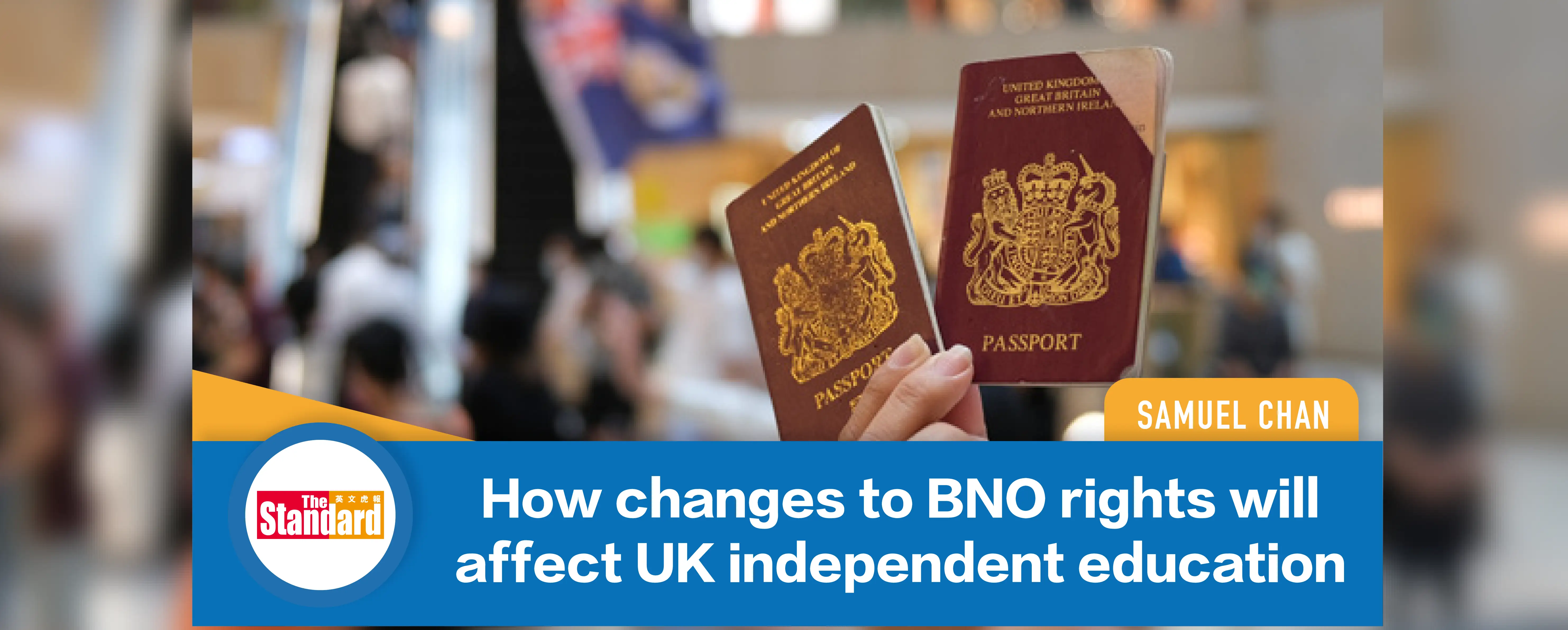We’re living in interesting times in Hong Kong.
The precise future of the territory’s relationship with mainland China is of concern not only to Hongkongers, but to the West in general. There is a possibility the UK government will change British National (Overseas) passport holders’ rights and provide a potential path for Hongkongers to gain UK citizenship.
I want to look at the implications of this change for independent education in the UK.
As many of you will know, the BNO passport was introduced after the Hong Kong Act of 1985. Anyone born before the handover in 1997 is eligible for one of these passports. Of course, they do not grant British citizenship – they are for travel and they allow one to visit the UK, visa-free, for six months.
If the UK changes BNO rights by extending that six- month period to 12, it would give people time to find a job in Britain and get on the path for UK citizenship.
So what will this mean for boarding schools and their Hong Kong students? Well, although it sounds like it would be a positive thing, it may actually drive students more toward day schools and even to the state system.
Up till now, parents have sent their children to boarding schools, and some have felt that this is a kind of sacrifice. Yes, it’s the traditional way of doing things and the education is excellent; however, they must accept living far away from their children and seeing them only during school holidays.
If these changes go through, it could be possible for families to live in the UK and for the children to go to day schools or choose flexiboarding, thus allowing the children to get an excellent education without breaking up the family.
Before, this was only possible for one parent of a child under 12 using a dependent visa.
I also think that if BNO rights change, families who choose to reside in the UK may be tempted to go for the state system instead of the independent system.
This would probably happen more at the primary school/prep school level than the secondary level.
UK parents themselves will often use the state system for the early years and then switch to the independent schools later so that teenagers can benefit from the superior facilities and are in excellent hands for their public exams and university applications.
At the moment, I know that many Hong Kong parents are delaying their decision about the future until they know what is happening with the BNO. It is difficult to be in a state of limbo, but I can completely understand why families want to wait.
On the schools’ side, they must also try to work through this time of ambiguity as best they can and be aware of the changes that could be on their way.
In spite of all this (and the effects of Covid-19), the general situation for international education is looking very positive.
I and my team at Britannia have just finished our first virtual school fair. In spite of this being a new format, we actually had 30 percent more registrations than we have ever achieved with our physical fairs.
On some days, we had over 350 student-to-school interviews taking place, which also tops our previous figures. The picture that this provides is, without doubt, an uplifting one.

